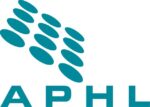Overview
*Applications will be reviewed on a rolling-basis.
CDER Office and Location: A research opportunity is available within the Food and Drug Administration (FDA) in The Center for Drug Evaluation and Research (CDER), located at Silver Spring, Maryland.
The Center for Drug Evaluation and Research (CDER) performs an essential public health task by making sure that safe and effective drugs are available to improve the health of people in the United States. As part of the U.S. Food and Drug Administration (FDA), CDER regulates over-the-counter and prescription drugs, including biological therapeutics and generic drugs. This work covers more than just medicines.
Research Project: This project is in the Office of Pharmacovigilance and Epidemiology (OPE), Office of Surveillance and Epidemiology (OSE). Causality assessments are critical in determining the potential association between drug exposures and adverse drug events when evaluating a safety signal. Multiple tools are available to assist with this determination, and are based on either implicit (e.g., clinical expertise, global introspection) or explicit (e.g., algorithms, probabilistic or Bayesian) criteria. Although FDA does not recommend any specific strategy/tool for assessing causality, many reviewers use the implicit World Health Organization (WHO) scale. However, previous studies have suggested little to no agreement between these algorithms when applied to spontaneous case reports. The project will characterize differences and similarities between various causality assessment tools and identify factors that impact appropriate selection of specific causality assessment tools (e.g., reviewer background/training, therapeutic area).
Learning Objectives: Under the guidance of the mentor, the participant will:
1. Improve existing abilities to evaluate, interpret, and assimilate pharmacoepidemiologic literature to frame, design, and inform research questions.
2. Develop transferable skills in conducting methodological assessments that may be expanded to multiple fields and disciplines.
3. Contribute to current knowledge in this field by presenting findings at conferences and/or publishing scientific manuscripts.
Appointment Length: The appointment will initially be for one year, but may be renewed upon recommendation of FDA and is contingent on the availability of funds.
Level of Participation: The appointment is full time.
Citizenship Requirements: This opportunity is available to U.S. citizens, Lawful Permanent Residents (LPR), and foreign nationals. Non-U.S. citizen applicants should refer to the Guidelines for Non-U.S. Citizens Details page of the program website for information about the valid immigration statuses that are acceptable for program participation.
This program, administered by ORAU through its contract with the U.S. Department of Energy to manage the Oak Ridge Institute for Science and Education, was established through an interagency agreement between DOE and FDA. The participant will receive a monthly stipend commensurate with educational level and experience. Proof of health insurance is required for participation in this program. Participants do not become employees of FDA, DOE or the program administrator, and there are no employment-related benefits.
Completion of a successful background investigation by the Office of Personnel Management is required for an applicant to be on-boarded at FDA. OPM can complete a background investigation only for individuals, including non-US Citizens, who have resided in the US for a total of three of the past five years.
FDA Ethics Requirements
If an ORISE Fellow, to include their spouse and minor children, reports what is identified as a Significantly Regulated Organization (SRO) or prohibited investment fund financial interest in any amount, or a relationship with an SRO, except for spousal employment with an SRO, and the individual will not voluntarily divest the financial interest or terminate the relationship, then the individual is not placed at FDA. For additional requirements, see FDA Ethics for Nonemployee Scientists.
FDA requires ORISE participants to read and sign their FDA Education and Training Agreement within 30 days of his/her start date, setting forth the conditions and expectations for his/her educational appointment at the agency. This agreement covers such topics as the following:
Non-employee nature of the ORISE appointment;
Prohibition on ORISE Fellows performing inherently governmental functions;
Obligation of ORISE Fellows to convey all necessary rights to the FDA regarding intellectual property conceived or first reduced to practice during their fellowship;
The fact that research materials and laboratory notebooks are the property of the FDA;
ORISE fellow’s obligation to protect and not to further disclose or use non-public information.
Qualifications
The qualified candidate should be currently pursuing or have received a bachelor’s, master’s, or doctoral degree in the one of the relevant fields. Degree must have been received within the past five years or anticipated to be received by 6/28/2024.
Preferred skills:
A clinical background and understanding of drug pharmacokinetics and pharmacodynamics.
Training in (pharmaco) epidemiology methods, including literature assessment, clinical trial design, and statistical evaluations.
Familiarity with the science of pharmacovigilance, specifically with regard to determining causation between an exposure and adverse drug event.




